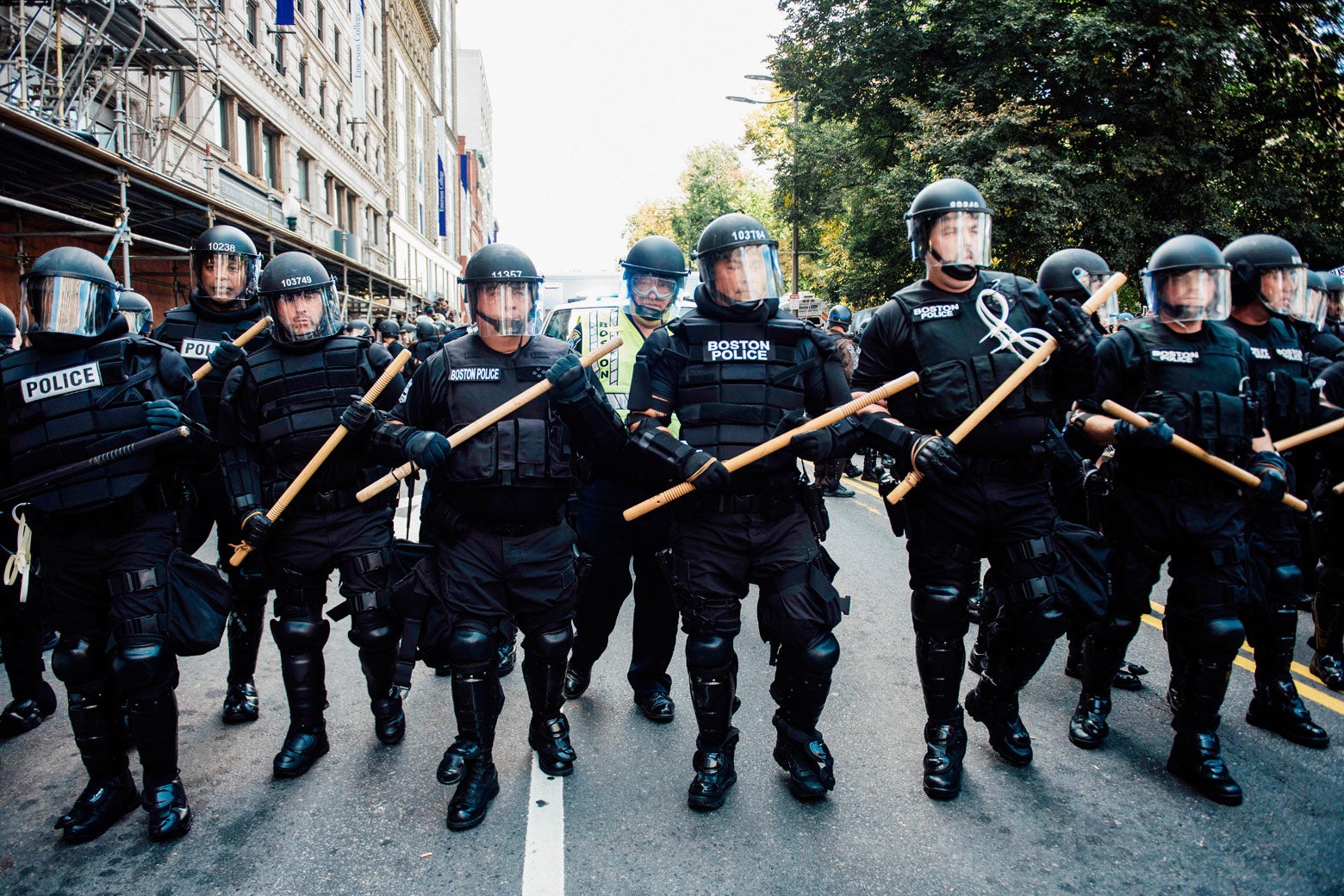Last month, the National Police Association filed a complaint with the Massachusetts bar against incoming Suffolk County District Attorney Rachael Rollins. The DA’s purported offense was a promise during the campaign not to prosecute certain crimes—such as being a minor in possession of alcohol or breaking and entering into a vacant property for the purpose of seeking refuge from the cold. The crux of the complaint is that law enforcement should not “turn a blind eye to criminal conduct.” But bar disciplinary committees do not deal in policy arguments; they apply ethical rules. Thus, the complaint tries to package its objections to Rollins’ promises as violations of particular ethical rules. These claims are absurd. Prosecutors routinely refuse to prosecute crimes, and more of them should make public statements about which crimes they won’t prosecute.
As just one example of the complaint’s ridiculousness, the NPA asserts that Rollins violated Ethics Rule 3.8(f)(1). That rule forbids prosecutors from making comments outside of a courtroom that would prejudice a particular defendant in a particular case. How a candidate for DA—who is not yet a prosecutor—violates this rule by communicating what her general policies will be if she is elected is a complete mystery.
The NPA’s main claim, though, is that Rollins’ decision not to prosecute certain types of crimes violates her obligation to protect public safety. There is no ethics rule that requires prosecutors to protect public safety, however. To get around this, the NPA tries to shoehorn this public safety argument into the ethical rule forbidding prosecutors from bringing criminal charges without probable cause. Specifically, it argues that the rule also carries the implicit duty to bring charges whenever there is probable cause to support them.
That argument is also meritless—both as a matter of logic and of ethics. A rule does not imply its inverse, and the ethics rules are written narrowly for a reason. Nonetheless, the argument might sound intuitively appealing as a policy matter. But it’s absolutely wrong on that front as well.
Criminal laws are written broadly, and prosecutors have limited resources to prosecute cases. It is both undesirable and impossible for prosecutors to bring charges every time the law is broken. Prosecutors have to make decisions about the types of cases they will charge, and which ones they won’t. The law has long recognized that prosecutors have discretion not to charge a suspect despite having probable cause to believe that the suspect committed an offense. And prosecutors routinely exercise this discretion.
We got a glimpse of that discretion in 2016 when then FBI Director James Comey explained that, even if Hillary Clinton’s behavior violated a federal law about mishandling classified information, it did not meet the internal criteria that the Department of Justice used for actually bringing charges in such cases. It is not just the federal government that declines to charge all crimes, of course. Professor John Pfaff has shown that, nationwide, prosecutors file charges in fewer than 60 percent of cases where a suspect is arrested.
Prosecutors often exercise their discretion on a case-by-case basis. But they also make categorical decisions not to enforce criminal laws. Sometimes they do so because they want to spend their limited resources fighting other types of crimes; sometimes they do so because the law simply no longer reflects current social values. Massachusetts is no exception.
Until this past July, Massachusetts outlawed unmarried sex. Needless to say, that law went unenforced. No reasonable person would say that prosecutors across the state acted unethically when they did not attempt to enforce that law.
Some might object that, even if an elected prosecutor has formal non-enforcement policies, she should not announce those policies to the public because it might encourage illegal behavior. For example, one might think that Rollins’ statement that she is not going to prosecute minors who possess alcohol will lead to more teenage drinking. Significant research, however, suggests that this sort of reasoning is not borne out in practice.
The possibility of criminal enforcement is not the only, or even the main, reason that people obey the law. They worry about other, noncriminal consequences. Most teenagers who do not drink, for instance, are worried about getting good grades; their relationships with their parents, coaches, or friends; or even preserving their own self-image. They are generally not avoiding alcohol because they are worried about going to jail.
Public non-enforcement announcements also have affirmative benefits. They help ensure that law enforcement does not apply laws in an arbitrary or discriminatory fashion. If non-enforcement policies are made widely known, then defense attorneys and the general public can draw attention to cases where office policy is not being followed. This external scrutiny does not simply encourage prosecutors to obey the decisions of their elected bosses; it also helps to prevent law enforcement from using overly broad or rarely enforced laws as a pretext for racial or other discrimination.
More important, public announcements make prosecutors democratically accountable for their enforcement policies. All prosecutors make decisions not to enforce laws. But most do not publicize those decisions. These unannounced non-enforcement policies hinder the public’s ability to make informed voting decisions or to give feedback to elected prosecutors about how they have chosen to use their discretion.
In announcing this list of crimes, Rollins has ensured some measure of legitimacy and accountability for her decisions. Reasonable people can disagree about the particular list of crimes Rollins has chosen not to enforce. But remember, Boston voters elected Rollins after she stated her policy. Voters in other parts of the country also live under similar nonprosecution policies, whether they are announced publicly or not.
The National Police Association hasn’t identified an ethical lapse. What it’s identified is a public official allowing her constituents to hold her accountable. That is something that we should celebrate, not condemn.
